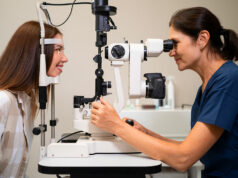By Maya M. Padillo
DAVAO CITY — A group of female doctors specializing in fertility know that fatalism, or the Filipino bahala na attitude, is prevalent among many couples when it comes to child-bearing.
But these fertility experts, who have invested P30 million in the first in vitro fertilization (IVF) facility in Mindanao, are determined to change that mind-set, not just by introducing the medical technology but by finding means to make it affordable.
“We will encourage the market that this is worth investing in rather than (simply) relying [on fate] kasi nandoon pa rin ang (because there is still the) culture of ‘when it comes, it comes,’” said Dr. Maria Lourdes Z. Cabling, one of the incorporators of IVF Davao, Inc., which opened its facility last week at the Fertility Care Center of the Brokenshire Integrated Hospital and Ministries in Davao City.
A number of factors may affect a person’s ability to conceive a child including stress, a variety of physical conditions such as obesity, and exposure to pesticides and extreme heat, among others.
Another of IVF Davao’s incorporators, Dr. Darlene S. Estuart, said the technology should open the minds of the people in Mindanao. “In layman’s term, it’s called test tube baby, like making babies in the laboratory… It is still the couple’s baby,” said Dr. Estuart. With IVF, the couple’s egg and sperm are collected and fertilization is done in the lab, then the resulting embryos are placed in the woman’s womb.
“In the past it used to be taken as very esoteric. But if you look at the [process], you can see that it is easily done and simple and the technology is available,” she added.
The doctors said there are patients already lined up for tests and they are looking at possibly five couples who will undergo IVF by December.
FINANCING
An IVF procedure costs between P285,000 to P450,000, and IVF Davao is looking at financing options that it can offer to patients.
“This is a segment of society that should not be neglected. They have the right to have children. We already have the technology for them to access,” said Dr. Veronica M. Deniega, another incorporator.
Dr. Estuart said there is a 50% success rate for IVF in the Philippine, and the chances are higher for couples if the woman is younger.
“If you are younger, around 30 years old, we’re talking about [a success rate of] 80%, but if you are 40 years old, the chances fluctuate around 5%,” said Dr. Irene L. Uy, another partner.
Dr. Deniega also pointed out that “misconceptions and myths” about infertility are still widespread globally. One of the biggest misconceptions, she said, is that it is a “woman problem.” The doctor said, “We have to explain to them that this is a couple problem, and this is a global misconception.”



